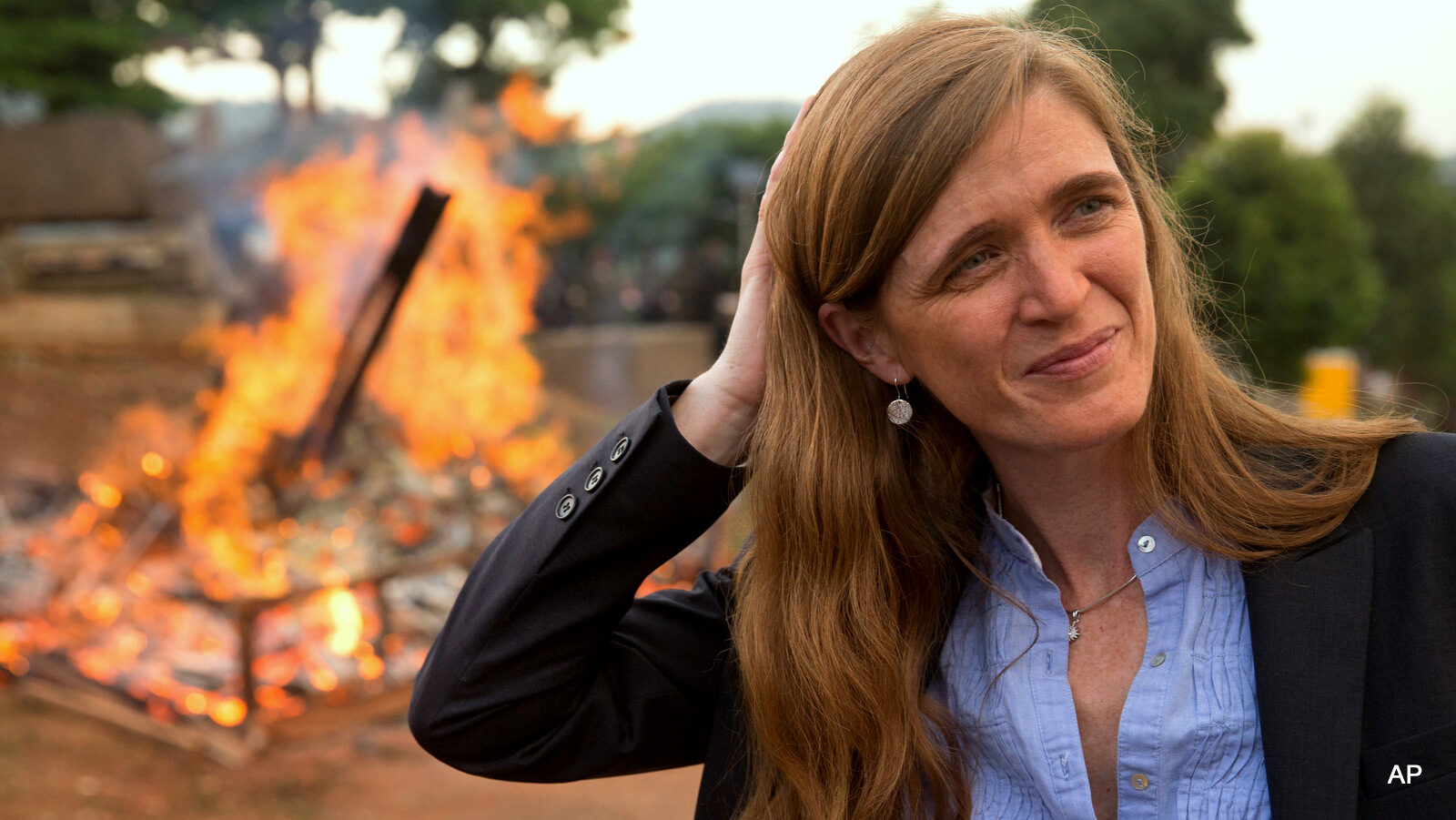Before Samantha Power became the U.S. ambassador to the United Nations she was known as a human rights defender and opponent of genocide.
In that role, she sharply criticized the record of former Secretary of State Henry Kissinger, who she considered complicit in American war crimes and empire-building.
But on June 8, the former statesman will personally present Power with the Henry A. Kissinger Prize, an award in his honor which is given each year to an American or European diplomat.
In a May 29 analysis in The Intercept, Zaid Jilani quoted from “A Problem from Hell: America and the Age of Genocide,” a book-length examination of U.S. foreign policy that won Power the Pulitzer Prize in 2002. In it, Power wrote that Kissinger had “blackened his own reputation” through support of genocide in Cambodia.
“Under Kissinger’s watch, the United States dropped nearly half a million tons of explosives on Cambodia, resulting in the deaths of thousands of noncombatants,” Jilani noted.
According to the Holocaust Museum Houston, an additional 1.7 million died “through work, starvation and torture” under the genocidal rule of the Khmer Rouge in Cambodia.
Elsewhere in “A Problem from Hell,” Power criticized U.S. involvement in Saddam Hussein’s massacre of Iraq’s Kurdish population. Under Kissinger’s guidance, the U.S. first supported the Kurds, encouraging an armed revolt, then withdrew support in order to deepen ties with the Iraqi government.
“Henry Kissinger, U.S. secretary of state at the time, said of the American reversal of policy and the Kurds’ reversal of fortune, ‘Covert action should not be confused with missionary work,’” Power wrote.
Estimates of the number of Iraqi Kurds killed in Hussein’s U.S.-backed crackdown range from 50,000 to 182,000.
According to Jilani, Power criticized Kissinger again in another book, “Sergio: One Man’s Fight to Save the World,” this time for his support of the 1975 invasion of East Timor by Indonesia. According to reports cited by Noam Chomsky, another outspoken critic of U.S. foreign policy, about 60,000 people, or 10 percent of the population, died during the invasion and subsequent occupation of East Timor.
Although the award recognizes Power for her “determined pursuit of a more secure, peaceful, and humane world,” she recently defended the 2011 intervention in Libya, in which the U.S. and its allies helped overthrow the government, leading to the assassination of the country’s ruler, Moammar Gadhafi. In a May 19 appearance on “The Axe Files,” a podcast hosted by David Axelrod and produced by CNN and the University of Chicago Institute of Politics, Power tried to downplay the U.S. hand in destabilizing the nation:
“I think we also had a sense — and this is something you never really hear talked about today — that Humpty Dumpty was already broken. There had already been a revolution and a revolution where people had expressed their revolt and revulsion at Gadhafi’s form of rule over so many decades The idea that this was going to be put tidily back into the box if one just stood back, I think, was extremely unlikely.”
In the interview, she acknowledged that the aftermath of the coup has turned out to be “very challenging.”
“[O]ne of the things we didn’t anticipate was just how anti-foreigner a country that had just had an intervention occur carried out by foreigners — how anti-foreigner that they would be,” Power added.
The power vacuum created by the fall of the Gadhafi government led to unbounded chaos in Libya, and opened the door for Daesh (an Arabic acronym for the terrorist group known in the West as ISIS or ISIL) to gain power. As a result, thousands of Libyan refugees have attempted the dangerous and often deadly journey by sea to Europe, adding to the already massive flood of refugees fleeing the Syrian civil war and other conflicts in the Middle East and Africa.
Quoting from a 2014 profile of Power in the New Yorker, Jilani speculated that she’d become less focused on human rights since joining the U.S. government as an ambassador to the U.N. Power told the magazine:
“We’re racing against the clock here to get as much done as we can. So when you run across people who know how to be bureaucratic samurais, or are especially persuasive in their diplomacy internationally, spend more time on those relationships, and on brainstorming with those individuals, to achieve a common purpose. Principles and positions only take you so far.”
Feature photo | U.S. Ambassador to the United Nations Samantha Power stands near the first Cameroon Ivory Burn at the Palais des Congres in Yaounde, Cameroon, Tuesday, April 19, 2016. Photo | AP


